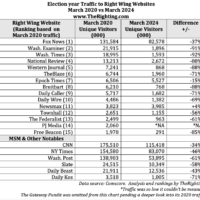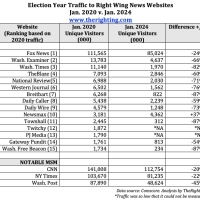
Can Threads Provide a Social Platform for “Friendly” Conversations without Political Debates?
Will this venture doom the Blue Bird?
By Jaden Satenstein, July 19, 2023
It’s disheartening when humor outlets report satirical news that’s scarily close to reality.
We see this phenomenon in TheOnion.com’s recent article on why more than 100 million people joined Meta’s new Twitter-look-alike app, Threads, in just the first five days after its hasty yet record-breaking launch on July 5.
“I don’t like Musk and have temporarily forgotten how bad Zuckerberg is,” said “Michael Willard,” a fictitious Threads user in TheOnion’s satire piece.
Willard may be fake, but his reasoning is shared by millions of real users ditching Twitter in retaliation against billionaire Elon Musk’s reign of terror over the bird-app.
Mad at Musk
After Musk bought the platform for a shocking 44 billion dollars in October 2022, he took an ax to not only half its workforce but also many of Twitter’s hallmark features, from the blue-check verification process to content moderation. Musk, who has an affinity for spreading far-right conspiracy theories online, pledged to promote “free speech” (i.e. allowing Nazi trolls and white supremacists to roam free on the platform). News outlets responded to the mass backlash against Musk with headlines like “Looking for Twitter alternatives not owned by Elon Musk? Here are some options” and “Deleting Twitter After Elon Musk’s Takeover? Try These Alternatives.”
These articles mentioned platforms like the open-source, crowdfunded Mastodon and Bluesky, which was launched by Twitter co-founder Jack Dorsey. While some users migrated away from Twitter, no other network seemed to pose an immediate threat to Twitter’s status as a major online public forum.
Then Meta CEO Mark Zuckerberg announced the launch of Threads.
It came at a particularly vulnerable time for Twitter. Back in May, Fidelity valued the company at $15 billion – just about a third of what Musk paid for it last fall. In the days leading up to Threads’ launch, Twitter users experienced outages and unpopular new restrictions, like limiting the number of posts one could see per day.
The new app, which looks and operates similarly to Twitter, made a big splash when it entered the already crowded field of social networking platforms: 30 million users joined the app in just one day.
Why was Threads able to reach the kind of immediate success that other Twitter rivals haven’t managed to achieve?
Threads Breaks the Internet
Dominating the social media market, Meta has an obvious advantage in terms of money, resources and name-recognition. Naturally, major outlets were quick to report on all things Threads – from guides to using the app to political think pieces. Meta capitalized on its mass popularity by creating an effortless way to sign up for its new app. If you already have an Instagram account, you can instantly join Threads using the same profile information and even receive recommendations to follow Instagram mutuals who’ve already made Threads accounts.
In the click of a button, you can get on Threads. But the link to Instagram also means there’s no escape – it’s impossible to permanently delete a Threads account tied to an Instagram profile without erasing the Instagram account as well. Some key Twitter features are also missing from Threads as it exists now. There’s no desktop version, no hashtags, and no way to scroll through your feed chronologically.
While Threads’ buzzworthy launch is undeniable, the question now is what happens next. Will Meta sustain and grow upon the app’s initial success, or will it soon become as irrelevant as the company hopes to make Twitter?
Some numbers indicate that the initial rush to defect from Musk’s version of Twitter may not be enough to put Threads on the path to long-term success. The marketing intelligence firm Sensor Tower estimated that daily active users dropped by 20 percent between July 8 and 11. The amount of time users spent on the app also cut in half.
“[Threads] will need a more compelling value proposition than simply ‘Twitter, but without Elon Musk,’” Sensor Tower managing director Anthony Bartolacci told CNBC.
Meta knows the lack of Musk is an initial draw for many. “We’ve been hearing from creators and public figures who are interested in having a platform that is sanely run, that they believe that they can trust and rely upon for distribution,” Meta chief product officer Chris Cox told staffers in June, taking a clear shot at Musk’s seemingly erratic handling of Twitter.
Not a News App
Meta is clearly marketing the app as an alternative to Twitter, and Musk has responded by threatening to sue the company for misappropriating Twitter’s “trade secrets.” However, Meta’s also trying to distinguish Threads by framing the platform as a place for “friendly” conversations, not news and political debates. Unlike Twitter, Threads doesn’t promote political content.
As Twitter has devolved into the kind of far-right-friendly hellscape that right-wing platforms like Truth Social and Parler were designed to be back when Twitter had some semblance of content standards, some may see Threads as an opportunity for political discourse with less “fake news” and hate speech.
Why, then, isn’t Meta marketing the app that way? Well, that may have to do with the fact that, as the fictitious Willard said in TheOnion, Zuckerberg might not be much better than Musk. The public hasn’t forgotten about the myriad controversies Meta has faced over the years, from data privacy breaches to rampant misinformation about COVID-19 and the 2020 election. Explicitly framing the app as a “less angry place” that doesn’t need “to get into politics or hard news” may be a way to absolve Meta from the kind of content moderation responsibilities it’s failed at before.
The Future of Threads
So far, we’ve seen a wide variety of public figures join Threads, from Oprah to the Kardashians to the Dalai Lama. Unsurprisingly, left-wing politicians like Representative Alexandria Ocasio-Cortez and California governor Gavin Newsom have signed up, but the app hasn’t completely fallen onto one side of the political spectrum just yet. Some Republican politicians have made accounts, including Senator Ted Cruz.
And so have right-wing trolls.
Media Matters found that far-right extremists and white supremacists like Richard Spencer and Nick Fuentes immediately joined Threads and began to test the extent of Meta’s content moderation policies, posting slurs and blatant misinformation to the platform.
“The company seemingly launched this new platform to capture dissatisfied Twitter users, but it has once again failed to anticipate how bad actors would use the platform, launching without adequate policies or enforcement mechanisms to address the pernicious threat of misinformation and hate speech,” Media Matters’ Kayla Gogarty and Natalia Mathes wrote.
It’s still unclear whether Threads has a chance of sending Twitter into oblivion. The new app’s role in the social media sphere may very likely depend on how Meta responds to the users already combating the company’s goal to focus on “kindness.” Can Threads really avoid the partisan conflict that dominates Twitter, or will its attempt to do so be the reason it fizzles out as quickly as it erupted onto the scene?
Jaden Satenstein (@jadensat) is a writer, producer and social media consultant. She has worked for WNYC, FRONTLINE PBS, the St. Louis Post-Dispatch and Straus News Manhattan.
Interested in more news about right-wing websites curated especially for mainstream audiences? Subscribe to our free daily newsletter.
Meta is trying to distinguish its new social media platform Threads by framing it as a place for “friendly” conversations, not news and political debates. Unlike Twitter, which has devolved into a far-right-friendly hellscape, Threads doesn’t promote political content. (Image: Wikimedia Commons)
























